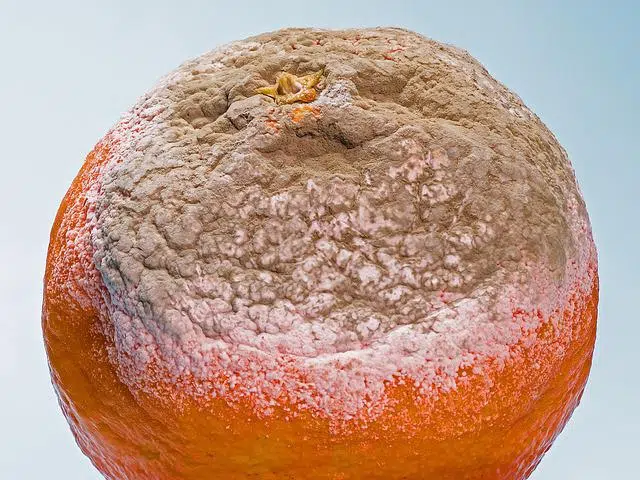
Decomposition is usually associated with putrefaction.
Decomposition is the act and consequence of decomposing or decomposing (that is, generating disorder, segmenting the parts of a compound, breaking down, entering a state of putrefaction or losing a healthy state).
From the perspective of biology , decomposition is a process that leads to converting the body of a living organism into a simpler form of matter. In this regard, it must be said that the body begins to decompose after the death of the individual: in a first stage, the emission of gases occurs, while, in a second stage, the matter begins to decompose and fluids are formed.
Autolysis (as known as the breakdown or rupture of tissues due to the body's chemical compounds) and putrefaction (that is, the disintegration of tissues due to bacterial action) release gases, which generate the characteristic odor of corpses and they ignite the remains. Insects and other organisms are responsible for the last phase of decomposition.
Decomposition and criminology
Specifically, therefore, we can establish that there are five phases through which the decomposition of a human body goes: fresh, swollen, active putrefaction, advanced putrefaction and finally dry. All stages that are frequently used in the area of criminology.
And when a person's body appears, the team of forensic experts and criminologists leading the investigation will use the state of decomposition in which the body is found to discover how long the victim has been dead.

Bacteria and insects can intervene in putrefaction.
Factors that affect the process
There are multiple factors that influence decomposition, such as temperature , humidity, the surface on which the body is kept and the presence of insects.
However, to all these factors that speed up the decomposition process or not, we should add others that also influence it. Among them are, for example, the cause of death, the depth to which the body has been buried, the trauma suffered by the aforementioned organism, whether it has rained or not, the clothing worn by the deceased and also the weight itself. and the size of the victim.
In the case of the animal world, it must be emphasized that the decomposition phases of an animal organism are very similar to those of a human being. However, each species, based on its own characteristics and hallmarks, varies the process to a certain extent.
In addition to all of the above, we cannot ignore the fact that there are two methods to stop and paralyze the aforementioned decomposition process. Specifically, we are referring to embalming, which was already carried out in Ancient Egypt, or mummification.
Decomposition in chemistry, mathematics and everyday language
The so-called chemical decomposition , for its part, identifies the breakdown of molecules in a procedure that gives rise to other smaller molecules or atoms. This decomposition can occur spontaneously or caused by certain external factors that promote the decomposition of the molecule into substances with simpler chemical bases.
For mathematics , on the other hand, decomposition is a factorization process. For example: 8 can be decomposed into factors 4 and 2 by multiplication ( 8=4×2 ).
In everyday language, decomposition is synonymous with diarrhea (watery bowel movements).
